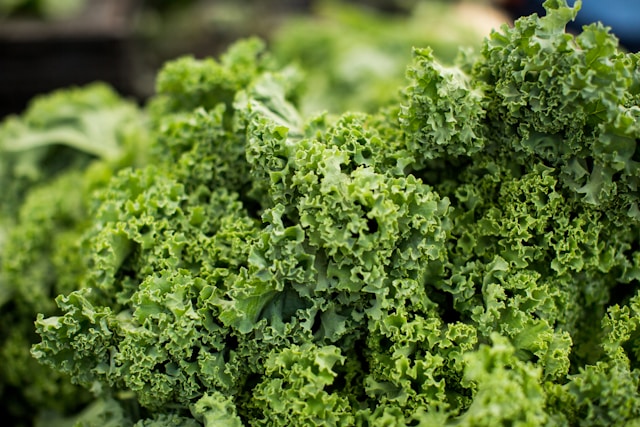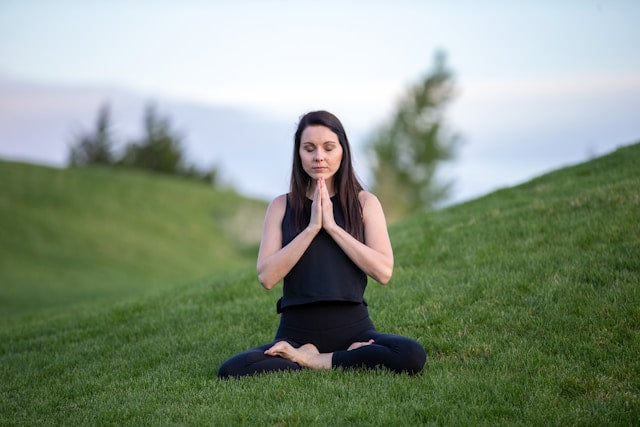What is Pneumonia and what can you do about it? Home Remedies & More!
July 29, 2022
According to a survey from the American Thoracic Society [1], Pneumonia is the world's largest cause of mortality among children under the age of five, accounting for 16% of all fatalities among children under the age of five in 2015, killing roughly 2,400 children every day. Pneumonia is a lung infection that can be caused by a number of different viruses, bacteria, or fungi. This lung infection is quite common and can be deadly if not caught and treated in time. If left untreated, pneumonia can lead to serious health complications such as sepsis or even death in some cases where the person has an existing condition like asthma which makes them more vulnerable towards this type of virus. In the US, pneumonia is less often fatal for children but it's still a big problem[3].
Pneumonia accounts for one out five hospitalizations among American kids - that’s worse than asthma or diabetes! Thankfully, pneumonia is usually easy to diagnose and can be treated with antibiotics or other medications.
Symptoms include coughing up mucus; chest pain on deep inhalation (dyspnea), rapid breathing while sleeping because your lungs are working improperly due to inflammation from within.
WHAT IS PNEUMONIA?
Pneumonia is a condition caused by an infection of the lungs. The infection can be caused by bacteria, viruses, or fungi, and it typically leads to inflammation of the air sacs in the lungs.
There are many different types of pneumonia, and the symptoms can vary depending on the cause.
Pneumonia comes in numerous varieties, each with its own set of symptoms and treatment choices. Pneumonia can be classified according to the location of the infection: bronchial pneumonia and lung pneumonia, the causative agent: viral pneumonia or bacterial pneumonia, the severity of the illness: mild pneumonia and severe pneumonia, or according to where it was contracted: hospital-acquired pneumonia, community-acquired pneumonia, or aspiration pneumonia.
Viral pneumonias are usually less severe than bacterial pneumonias and often resolve on their own without the need for antibiotics. Bacterial pneumonias, on the other hand, can be more serious and may require hospitalization and treatment with antibiotics.
Pneumonia can also be classified Hospital-acquired pneumonias are typically more severe than community-acquired pneumonias because they are contracted by people who are already sick and have weakened immune systems. Aspiration pneumonia occurs when liquids or food are inhaled into the lungs, where they can cause an infection. Bronchial pneumonia is a type of pneumonia that specifically affects the bronchi, the large airways that carry air to the lungs.
HOW DO YOU KNOW IF YOU HAVE PNEUMONIA?
Pneumonia can range from mild to life-threatening. It’s most serious for infants and young children, people older than age 65, and people with health problems or weakened immune systems. Pneumonia is usually diagnosed based on symptoms and a physical examination. A chest X-ray may also be taken to confirm the diagnosis.
Pneumonia can also cause fever, sweating, and chills. In severe cases, pneumonia can lead to confusion, hallucinations, and death. Anyone can develop pneumonia, but some people are at greater risk than others. These include people with chronic lung conditions such as asthma or COPD, people who have weak immune systems, and young children and older adults. Pneumonia can be a serious illness, but prompt treatment can often help to prevent complications. Pneumonia symptoms usually come on quickly. They may include:
- Cough, which may produce phlegm
- Fever
- Chills
- Shaking or feverish chills
- Shortness of breath or rapid, shallow breathing
- Sharp or stabbing chest pain that gets worse when coughing or breathing deeply
- Loss of appetite, low energy, and fatigue Seek medical attention right away if you experience these signs and symptoms.
CAUSES OF PNEUMONIA
Pneumonia is a serious lung infection that can be caused by a number of different things. The most common cause of pneumonia is bacteria, but it can also be caused by viruses, fungi, or other organisms. The most common cause is a viral infection, such as the flu.
Pneumonia often starts after you’ve had a cold or the flu. Your body is already weak from the virus and is then further weakened by the pneumonia bacteria. Pneumonia can also occur if you inhale food, vomit, or fluids from your mouth into your lungs (aspiration pneumonia).
It is most commonly spread through the air, but can also be contracted through contact with contaminated surfaces. Pneumonia can also be caused by inhaling foreign objects or chemicals, or by injury to the lungs. In most cases, pneumonia is caused by bacteria, and the most common type of pneumonia is bacterial pneumonia.
Pneumonia can be mild, moderate, or severe, and it can sometimes lead to death. Pneumonia can also be caused by physical factors such as smoke or chemicals, or by medical conditions such as cancer or HIV. However, the most common cause of pneumonia is still bacteria.
There are many different types of bacteria that can cause pneumonia, but the most common is Streptococcus pneumoniae. Pneumonia is often mild and can be treated at home, but it can also be severe and life-threatening. Pneumonia is more common in people who are smokers, have chronic lung disease, or have a weakened immune system. Pneumonia is usually treated with antibiotics, but hospitalization may be necessary in some cases.
HOW IS PNEUMONIA TREATED?
Pneumonia is a serious lung infection that can be fatal if left untreated. Pneumonia can be treated with antibiotics, but it is important to seek medical help early to ensure the best chance of recovery.
Pneumonia is usually treated with antibiotics, but viral pneumonia does not respond to antibiotics and must instead be treated with antiviral medications. The most common cause is bacteria, which is why antibiotics are the standard treatment.
Antibiotics operate by destroying the microorganisms responsible for the infection. If you have pneumonia, your doctor will likely prescribe a 10-day course of antibiotics. You should start to feel better within a few days of starting the antibiotic, but it's important to finish the entire course to make sure all the bacteria are gone. Pneumonia can be a serious illness, but with proper treatment, most people make a full recovery.
Pneumonia can be prevented by getting vaccinated against the viruses that cause it, such as influenza and S. pneumoniae.
Pneumonia can also be prevented by avoiding contact with people who have the disease and by practicing good hygiene, such as washing your hands often. Rest, water, and antibiotics are common treatments.
Pneumonia can be treated with antibiotics, but severe cases may require hospitalization. Early diagnosis and treatment of pneumonia is essential for a full recovery.
If you have any concerns about pneumonia, be sure to speak with your doctor. Early diagnosis and treatment are essential for a complete recovery. Pneumonia can also be treated at home with rest and plenty of fluids. However, it is important to see a doctor if you have any concerns or if your symptoms are severe. Pneumonia is a serious condition, and it is important to get treatment as soon as possible.
ARE THERE ANY WAYS TO PREVENT PNEUMONIA FROM OCCURRING?
Although pneumonia can occur at any age, it is most common in young children and older adults. There are several ways to help avoid getting infected by following these simple tips, you can help prevent pneumonia and keep your lungs healthy.
- Get vaccinated. There are pneumonia vaccinations available for both children and adults. Proper vaccination is the best way to protect yourself from pneumonia.
- Practicing good hygiene. Pneumonia can be spread through coughing and sneezing, so it's important to practice good respiratory hygiene. This includes covering your mouth and nose when you sneeze or cough, washing your hands often, and avoiding close contact with people who are sick.
- Avoiding tobacco smoke. Tobacco smoke irritates the lungs and can make them more susceptible to infection. Quitting smoking can also help prevent pneumonia. Smokers are more likely than nonsmokers to develop pneumonia. If you smoke, quitting is the best way to protect yourself from pneumonia.
- You should also avoid close contact with people who are sick.
- Avoid going to school or office if you’re sick.
Also Read: 12 High Fiber Foods you should eat to keep diseases away?
WHAT SHOULD YOU DO IF YOU OR SOMEONE ELSE HAS CONTRACTED PNEUMONIA?
Pneumonia can be a deadly lung infection if not taken care of properly. If you think you or someone else has contracted pneumonia, it is important to seek medical help immediately. Pneumonia can be caused by bacteria, viruses, or fungi, and it can affect people of all ages.
Coughing, chest pain, shortness of breath, rapid breathing, sweating, and fever are some symptoms of pneumonia. Pneumonia can also cause nausea, vomiting, and diarrhea. Any of these symptoms could be a sign of pneumonia, in such cases see your doctor right away. Pneumonia is treated with antibiotics, and the sooner you start treatment, the better your chances of recovery.
Pneumonia is a serious life-threatening lung infection. If you think you or someone else has contracted pneumonia, it is important to seek medical attention immediately.
Pneumonia can cause a range of symptoms, including coughing, chest pain, shortness of breath, sweating and fever. In some cases, the illness can also lead to confusion and delirium. If left untreated, pneumonia can be fatal. Early detection and treatment are critical for the best potential outcome. If you believe you may have pneumonia, contact your doctor or go to the nearest hospital emergency room for evaluation and treatment.
If you think you or someone else has contracted pneumonia, it is important to seek medical attention immediately. Pneumonia can cause symptoms such as coughing, chest pain, shortness of breath, rapid breathing, sweating and fever.
If left untreated, pneumonia can lead to respiratory failure, organ failure and even death. If you suspect that you or someone else has pneumonia, call 911 or go to the nearest emergency room.
Getting prompt medical care is the best way to ensure a full recovery from pneumonia.
If you think you may have pneumonia, it is important to see a doctor right away.
THE BEST TRIED AND TESTED HOME REMEDIES FOR PNEUMONIA
Pneumonia is a very serious infection that can be life-threatening. While pneumonia should always be treated by a medical professional, these home remedies can help to ease symptoms and promote recovery.
While there are many conventional treatments available, there are also some simple home remedies that can help to ease symptoms and speed up recovery. One of the most effective home remedies for pneumonia is ginger tea.
- Ginger has long been used as a natural remedy for a variety of respiratory conditions, and it can help to break up congestion and ease coughing.
- Another helpful remedy is onions. Onions are rich in quercetin, an antioxidant that has anti-inflammatory properties. They can be eaten raw, cooked, or added to soups or stews.
- Garlic is another food with antiviral and antibacterial properties that can help to fight off pneumonia. Garlic can be consumed raw or cooked, and it can also be used as a natural expectorant by boiling it in water and inhaling the steam. These simple home remedies have been used for centuries to treat pneumonia, and they can be just as effective today.
- One of the most well-known home remedies for pneumonia is chicken soup. The hot liquid helps to thin mucus and make it easier to cough up, while the broth provides valuable hydration and nutrients.
- Honey is another popular home remedy for pneumonia. Its natural antibacterial properties can help to fight the infection, while its thick texture can help to coat the throat and ease coughs.
- Crushing a few cloves of garlic and adding them to hot water can create a powerful healing tea.
- Some of the most effective home remedies for pneumonia include drinking plenty of fluids, getting ample rest, and using a humidifier. This helps to thin out mucus and makes it easier for the body to expel the infection.
- Gargling with salt water can also help to ease chest pain and coughing. Gargling with warm salt water can also help to reduce swelling and loosen phlegm.
- Finally, taking steam inhalations can help to loosen mucus and make breathing easier. Inhaling steam can also help to loosen mucus and reduce congestion.
- In addition, taking a steamy shower or using a humidifier will help to keep your airways moist and prevent further irritation.
- Finally, rest is crucial for healing from any illness, so make sure to get plenty of rest when you are suffering from pneumonia.
With treatment, most people recover from pneumonia within two to three weeks. However, some may experience lasting effects such as fatigue and shortness of breath. If your symptoms persist or worsen, be sure to see your doctor. While home remedies are not a substitute for medical treatment, they can be very helpful in managing symptoms and promoting recovery.
WHAT ARE THE RISKS ASSOCIATED WITH TAKING TOO MANY ANTIBIOTICS FOR PNEUMONIA?
Pneumonia is usually treated with antibiotics, but sometimes people take too many. Overusing antibiotics can lead to antibiotic resistance, which means that the bacteria begin to develop immunity to the antibiotics.
This can cause the pneumonia to become more difficult to treat and may even lead to death. In addition, taking too many antibiotics can also cause side effects such as diarrhea, vomiting, and abdominal pain. Therefore, it is important to only take the recommended dose of antibiotics and to finish the entire course of treatment.
Although antibiotics are effective at treating pneumonia, they can also have serious side effects. However, more serious side effects can also occur, such as allergic reactions, kidney damage, and inflammation of the bowel.
Taking too many antibiotics can also lead to the development of antibiotic-resistant bacteria. For these reasons, it is important to only take antibiotics for pneumonia when they are absolutely necessary.
ROLE OF GOVERNMENT IN PREVENTING PNEUMONIA
Pneumonia is a serious lung infection that can be deadly, particularly for young children and older adults. According to the World Health Organization [2], pneumonia kills more children than any other disease - more than AIDS, malaria, and measles combined. Thankfully, there are steps that governments can take to help prevent this disease.
One of the most important is to ensure that all children have access to vaccines. Pneumonia vaccines are highly effective, but they must be given regularly in order to be most effective. In addition, governments can work to improve access to clean water and sanitation facilities.
Pneumonias caused by bacteria and viruses are often spread through contaminated water or by contact with infected people or animals. Finally, government-sponsored education campaigns can play an important role in raising awareness about the symptoms and treatment of pneumonia. By working together, we can help protect vulnerable populations from this deadly disease.
You may like: 9 Foods you should include in your diet to improve your immune system?
MYTHS RELATED TO PNEUMONIA
Despite Pneumonia’s seriousness, there are a number of myths surrounding pneumonia that can make it seem less threatening than it actually is. One myth is that pneumonia only affects old people. In fact, anyone can develop pneumonia, although younger people are more likely to recover without complications.
Another myth is that pneumonia is just a bad cold. While it's true that both conditions share some symptoms, such as coughing and chest pain, pneumonia is usually much more severe. Pneumonia also often comes on suddenly, while colds tend to develop gradually.
Finally, some people believe that you can only catch pneumonia from being outside in cold weather. However, you can actually develop pneumonia from any number of bacteria or viruses, including those that cause the common cold. By understanding the facts about the condition, you can help to protect yourself and your loved ones from its potentially deadly effects.
CONCLUSION
Pneumonia is a respiratory illness that is caused by a bacterial or viral infection. The infection causes the lungs to fill up with fluid, making it difficult to breathe. Pneumonia can be deadly, especially for young children and the elderly.
Pneumonia is the top cause of mortality in children under the age of five in the United States. Pneumonia killed more than 800,000 children in 2016, according to the World Health Organization (WHO). The good news is that pneumonia may be avoided by vaccination.
Countries with high vaccination rates have seen a significant decrease in pneumonia deaths. In America, the pneumococcal vaccine is recommended for all infants and children under the age of two. For adults over the age of 65, the CDC recommends getting the pneumococcal vaccine as well as the flu shot to help prevent pneumonia.
Pneumonia kills over 50,000 Americans each year and hospitalizes over 1 million. Despite these facts, pneumonia is often preventable through vaccination. The Pneumococcal vaccine, for example, can help to protect against the most common type of bacterial pneumonia.
There are also vaccines available for other types of pneumonia, including Haemophilus influenzae and Legionnaires' disease. By getting vaccinated, you can help to protect yourself and your community from this deadly disease.
As we have seen, pneumonia is a serious condition that should not be treated lightly. Take immediate and decisive action. Diseases may be exhausting not just for the body but also for the psyche. Nobody should be demotivated or despondent. First, preventative measures must be implemented, followed by frequent full-body checkups.
People have a moral obligation to assist others who are infected. If you or someone you know has pneumonia, it is important to get medical help right away. In addition to medical treatment, moral support can also play an important role in helping people recover from pneumonia. Just knowing that someone cares can make a big difference for someone who is fighting this serious illness.
FAQs
1. What is Walking Pneumonia?
Walking Pneumonia is one of the forms of pneumonia which is mild in nature and is caused by various bacterias. As I said it’s a mild pneumonia so you won’t see any serious fever or coughing.
2. Which juice is good for pneumonia?
Fruit juices that contain high amounts of Vitamin C and antioxidants content helps in increasing the immunity and protect our body.
References
- Travis, W.D., Hunninghake, G., King Jr, T.E., Lynch, D.A., Colby, T.V., Galvin, J.R., Brown, K.K., Chung, M.P., Cordier, J.F., Du Bois, R.M. and Flaherty, K.R., 2008. Idiopathic nonspecific interstitial pneumonia: report of an American Thoracic Society project. American journal of respiratory and critical care medicine, 177(12), pp.1338-1347.
- WHO. “Pneumonia.” 11 November 2021, https://www.who.int/news-room/fact-sheets/detail/pneumonia. Accessed 28 July 2022.
- Metlay, J.P., Waterer, G.W., Long, A.C., Anzueto, A., Brozek, J., Crothers, K., Cooley, L.A., Dean, N.C., Fine, M.J., Flanders, S.A. and Griffin, M.R., 2019. Diagnosis and treatment of adults with community-acquired pneumonia. An official clinical practice guideline of the American Thoracic Society and Infectious Diseases Society of America. American journal of respiratory and critical care medicine, 200(7), pp.e45-e67.
Leave a comment
Comments will be approved before showing up.
Also in Wisdom News

The Importance of Vitamin K2: Unlocking its Role in Health and Wellness
September 22, 2024

The Importance of Omega-3 Fatty Acids: A Comprehensive Review of Their Effects on the Body
August 02, 2024

The Benefits of Mindfulness Meditation for Mental Health
July 12, 2024
Disclaimer: These statements have not been evaluated by the FDA. These products are not intended to diagnose, treat, cure or prevent any disease.
© 2026 Earth's Wisdom®. All Rights Reserved.




